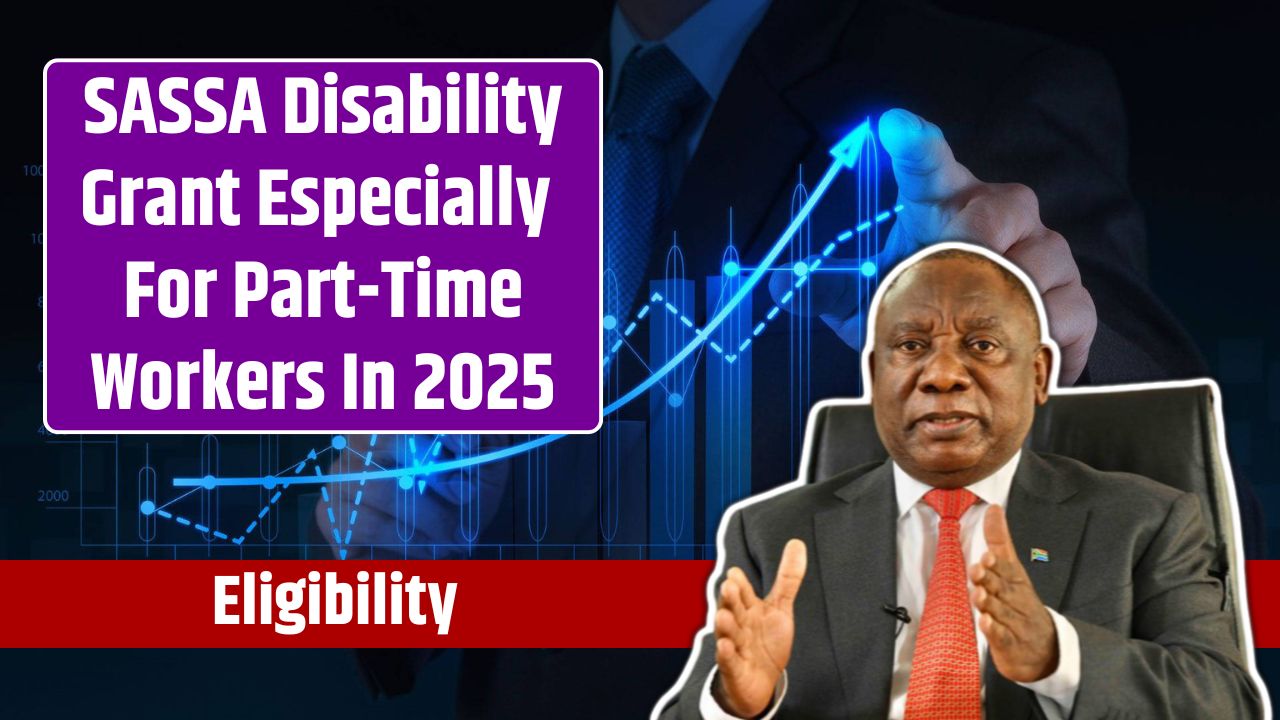The SASSA Disability Grant is a vital lifeline for many South Africans living with disabilities, offering financial support to those unable to work full-time. But what happens if a recipient wants to work part-time?
The good news is that part-time work is allowed, but there are specific rules and income limits to ensure continued eligibility.
Let’s dive into how you can balance part-time work and the SASSA Disability Grant without risking your benefits.
What is the SASSA Disability Grant?
The SASSA Disability Grant is designed for individuals whose long-term disabilities prevent them from earning a full-time income.
This monthly support, which is R2,080 in 2024, helps recipients manage essential costs like food, rent, and healthcare.
Eligibility Criteria:
- Citizenship: Must be a South African citizen, permanent resident, or refugee.
- Age: Between 18 and 59 years old.
- Medical Certification: Certified as permanently or temporarily disabled (6–12 months).
- Means Test: Must pass an assessment of income and assets.
- Care: Not residing in a state institution.
Can You Work Part-Time and Receive the Grant?
Yes, part-time work is allowed, provided the income stays within the limits set by SASSA. The program recognizes that limited work hours can help maintain independence while still offering financial security through the grant.
Income Limits:
- Single Individuals: Monthly income must not exceed R7,020.
- Married Couples: Combined income must not exceed R14,040.
Assets Threshold:
- Single Individuals: Total assets should not exceed R1,313,400.
- Married Couples: Combined assets must be under R2,626,800.
What Happens If You Exceed the Limits?
Income from part-time work is factored into the means test. If your total earnings surpass the allowable threshold:
- Grant Reduction: Your grant may be reduced proportionally.
- Grant Suspension: In cases of significant income, the grant could be stopped entirely.
However, as long as your income remains below the threshold, you can continue receiving the full or adjusted grant amount.
Reporting Income to SASSA
Transparency is crucial when working part-time while receiving the Disability Grant. Recipients must report all income to SASSA to ensure compliance and avoid penalties.
Steps to Report Income:
- Declare All Earnings: Include income from part-time jobs, freelance projects, or any temporary work.
- Submit Financial Documents: Provide bank statements, pay slips, or other proof of income upon request.
- Participate in Regular Reviews: SASSA conducts periodic assessments to verify continued eligibility, including income and medical evaluations.
How Reviews Impact Eligibility
Financial Reviews:
SASSA will check your income and asset levels to confirm compliance with the means test. This involves submitting up-to-date financial documentation.
Medical Reviews:
You may also need to undergo periodic medical check-ups to confirm that your disability continues to impact your ability to work full-time.
Balancing Work and Health
While part-time work offers financial and personal benefits, it’s essential to consider its impact on your health and grant eligibility.
If your disability worsens due to work, it might offset the advantages of earning extra income.
Benefits of Part-Time Work
Despite the potential challenges, working part-time while receiving the Disability Grant has several advantages:
- Financial Independence: Supplement your grant to cover additional expenses.
- Skill Development: Build work experience and skills for future opportunities.
- Social Engagement: Improve mental well-being through workplace interaction.
Balancing part-time work with receiving the SASSA Disability Grant requires careful management of your income and transparency with SASSA.
By staying within income limits, reporting changes promptly, and considering the impact on your health, you can maintain your financial support while gaining the benefits of part-time employment.



















